Chinese land where women still rule
Near the Tibetan border on the shores of Lake Luguhu in the Himalayas, a small Moso people live. The culture and way of life of the Moso are original and unique in that they are practically not affected by modern trends, although, as the old residents of the area note, everything is heading towards this. And the main distinguishing feature of the tribe is that a woman occupies a dominant place in society. It is the woman who decides important economic and family issues, the inheritance passes through the female line, a woman can have several "coming" husbands, whom she chooses out of love, without coercion.
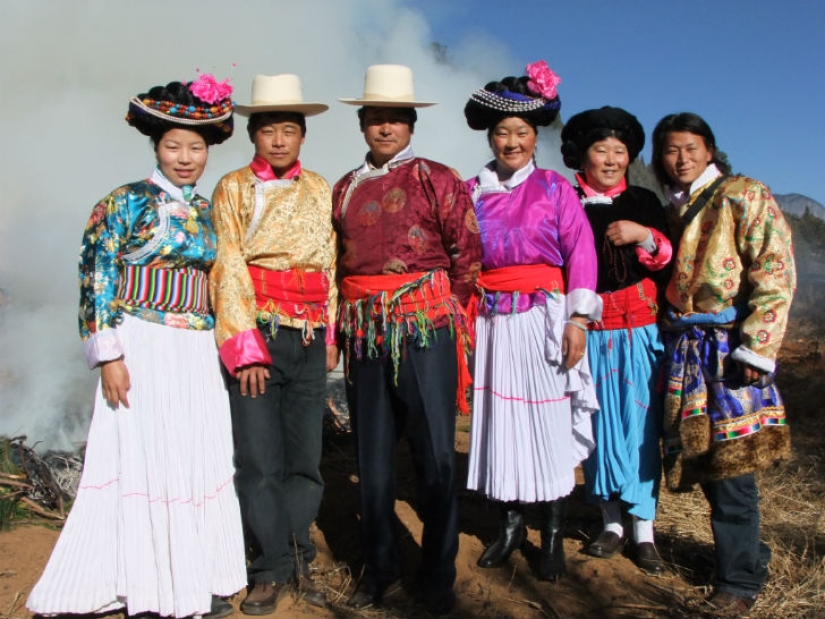
Broadly correspondent Mylene Larson, while filming the documentary "China's Last Matriarchy," spent a week at Luguhu Lake with a Moso family, learning about their unique culture and the realities of their matriarchal lifestyle.
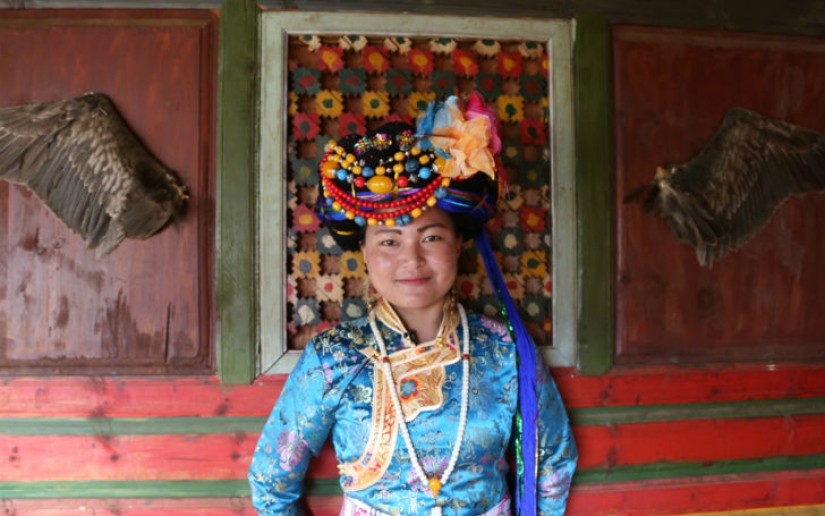
A 23-year-old woman named Lamu stands near the door to her bedroom, which the Moso call the Flower Room. In their culture, only women of childbearing age have their own room, while their lovers come to them only at night and leave at dawn.
Lake Luguhu is located at the foot of the Himalayas. The population is about 40 thousand people. Thanks to the isolated area, the tribe was able to maintain a unique way of life and traditions that have been observed for many centuries.
The Moso do not have a generally accepted concept of family and paternity. Often, neither the mother nor the child himself knows who his father is. Instead of a traditional marriage, there is a guest marriage, where the partner can live either at home or with his beloved.
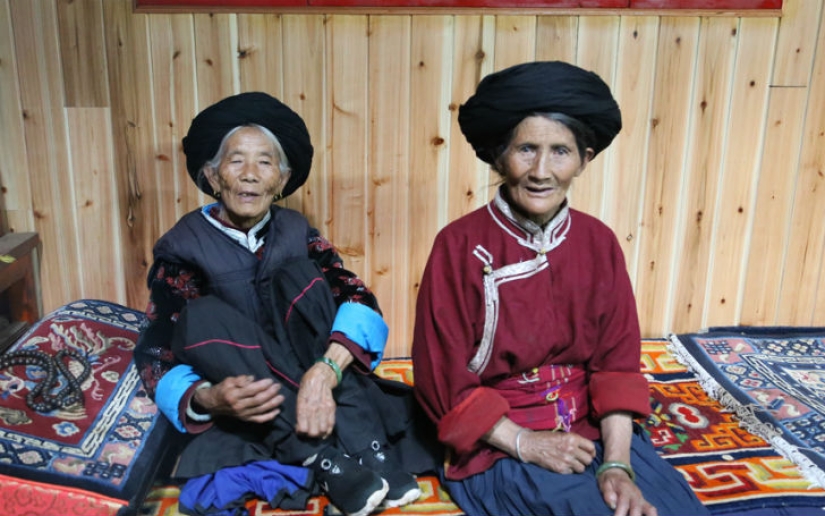
Grandmother and mother of the family in which the correspondent lived. Several generations live in the same house with brothers. All women help in the upbringing of children, they are also the breadwinners of the family. Men usually go to sell what women have grown in the fields, or do construction work around the house.
A man in a guest marriage visits his beloved only at night, and in the morning returns to the family of his sister or mother. Interestingly, it is usually the brothers of the head of the family who take care of the children.

Grandma Lamu is in a room that doubles as a living room, kitchen, and temple. The room is usually filled with containers of tea, rice wine, apples, sunflower seeds and nuts. Grandmothers are the most respected and revered members of society.
In essence, the Moso are monogamous, but the traditions of guest marriage mean that the partnership can be broken at any time, and women, like men, can have several lovers in a lifetime.
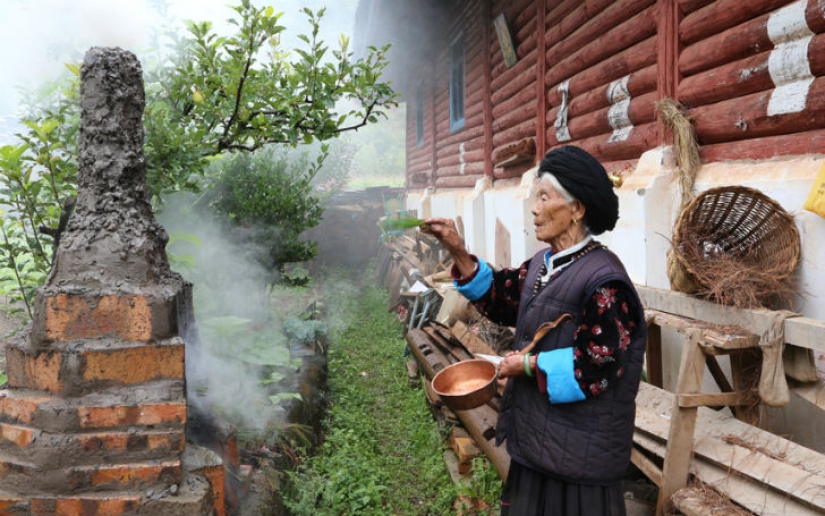
The grandmother of the Lamu family lights incense. Even the religion that occupies a significant place in the life of the Moso is unique - it is a mixture of their own faith "daba" and Tibetan Buddhism.
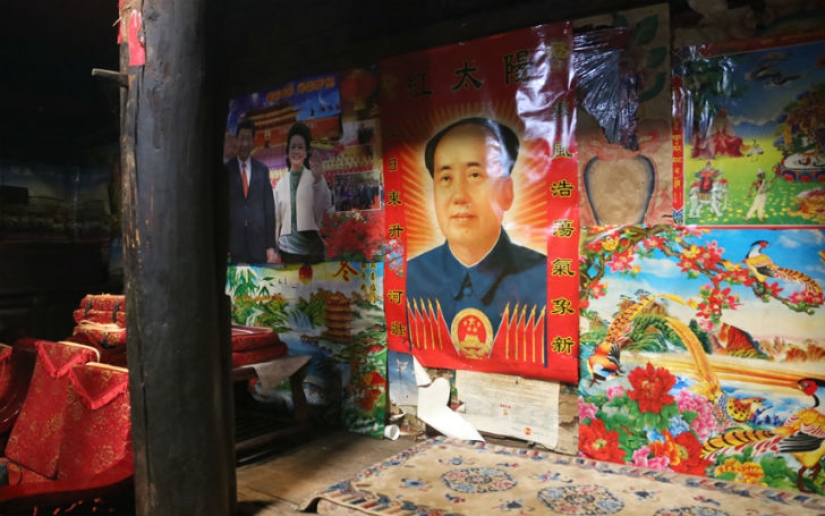
Often the walls of houses are decorated with portraits of Buddha and Mao Zedong. The Chinese politician is honored and respected here, because thanks to him the standard of living has significantly improved - electricity and railways have been laid in this remote corner of Chinese land.
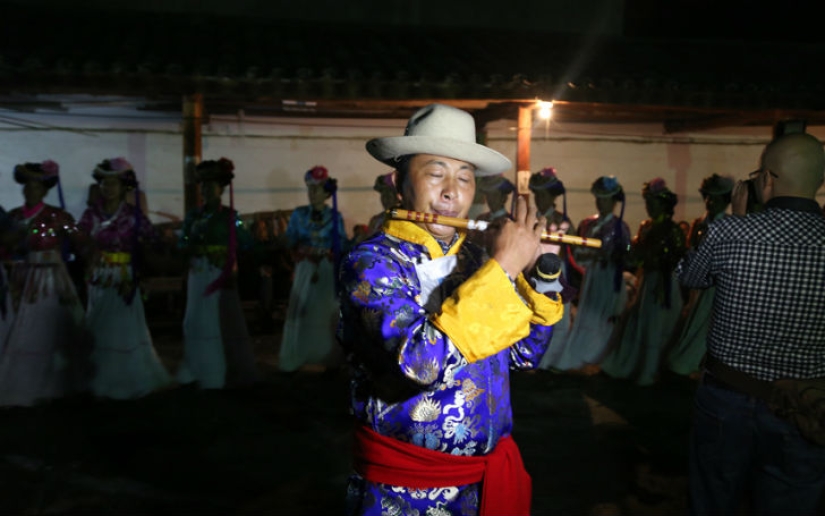
Flutes, drums and folk songs can be heard at traditional Moso dances.
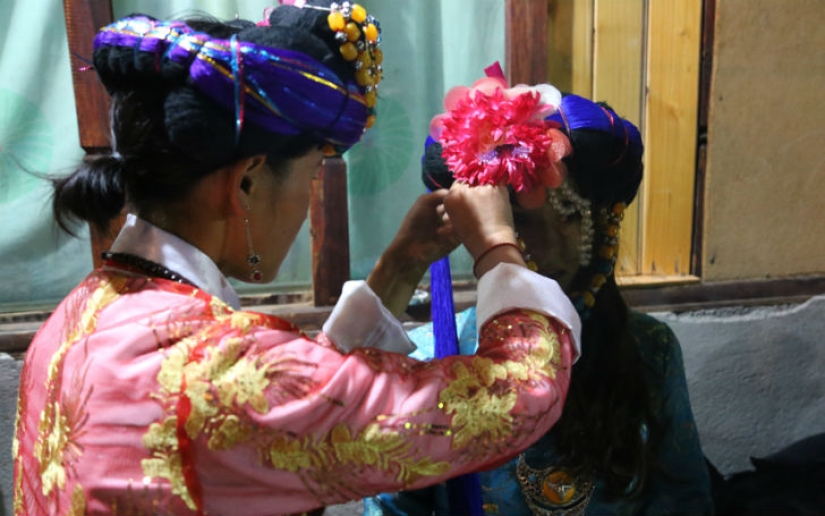
A Moso woman dresses correspondent Mylene Larson in traditional costume.
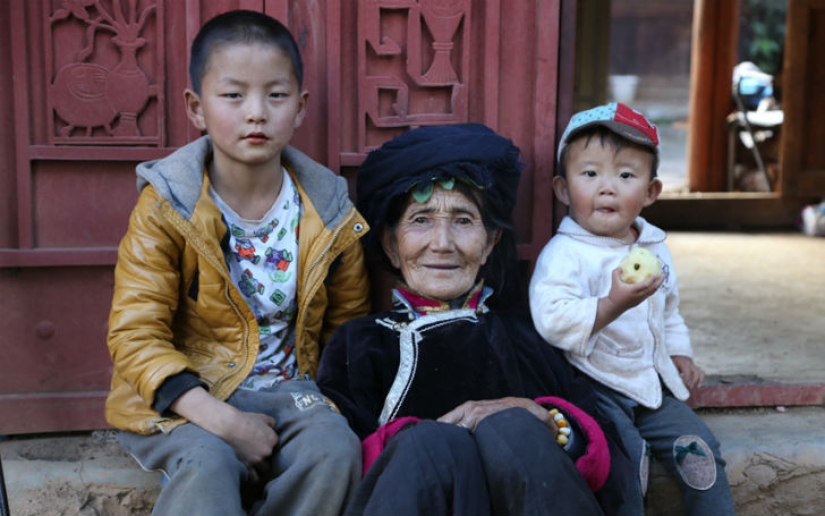
Grandmother with her grandchildren.
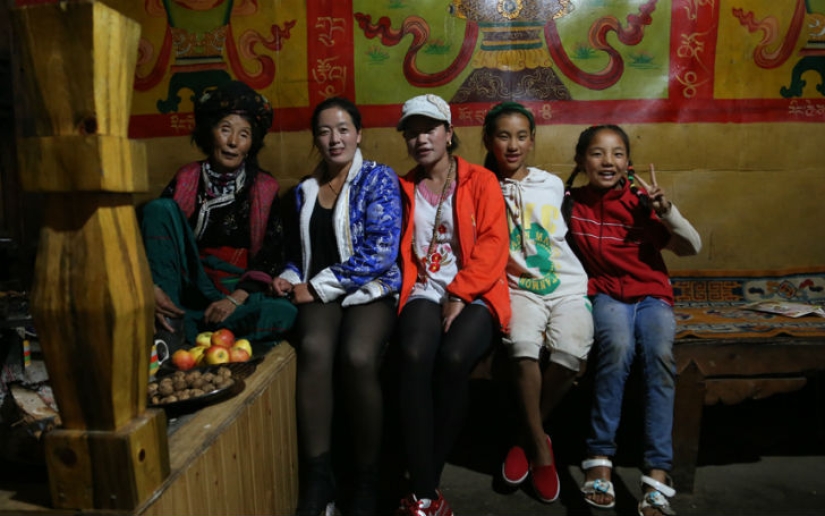
The traditional Moso family - three generations of women live together in the same house. By the clothes, you can already notice the modern world gradually penetrating into the life of the Moso - only the grandmother of the family is dressed in a traditional costume. It was these women in national clothes who lived an incredibly difficult life on the shores of Lake Luguhu, never leaving its borders. Now the younger generation is torn between honoring traditions and the opportunities to study at schools and universities.
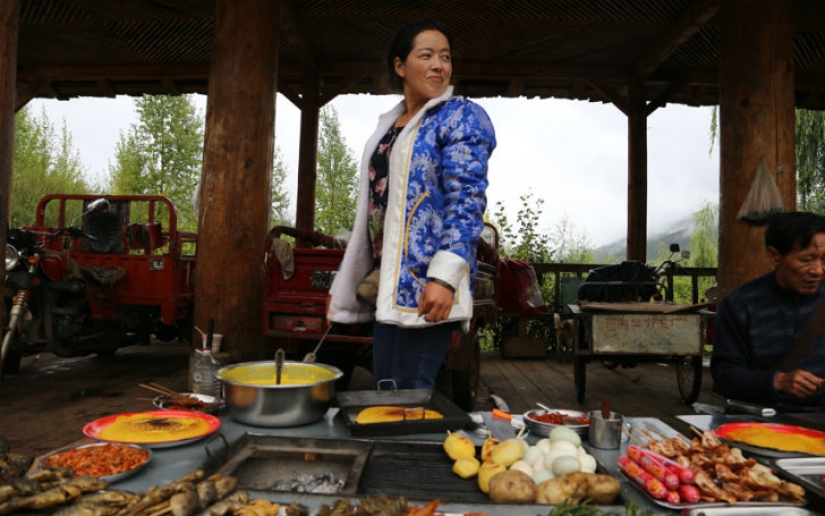
Pictured is 33-year-old Lusu. She still lives according to the traditions of her tribe, but she already earns on tourism, since she cannot read or write. 80% of young people leave their families to get an education in big cities, where they often stay after getting married. Moso speak the dialect "na", but the people do not have a written language.
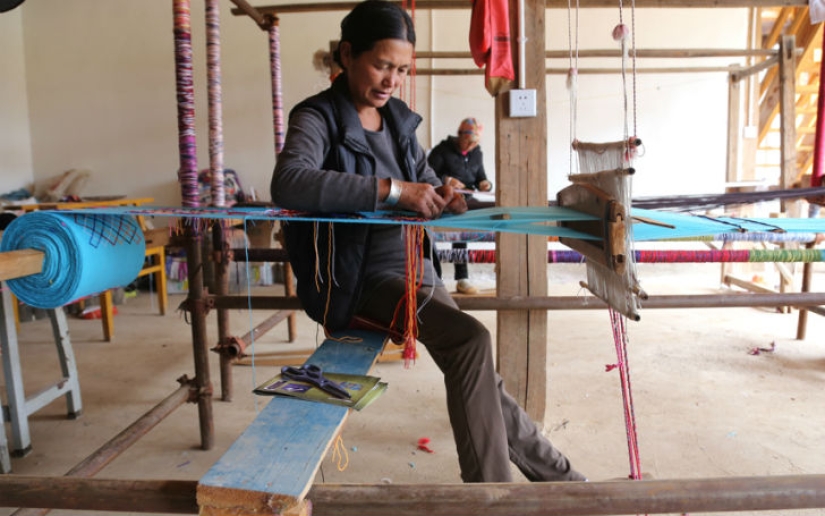
Clothes and blankets handmade by this woman are sold all over the world. Handicrafts used to play an important role in Moso culture, but now these traditions are in danger of extinction.
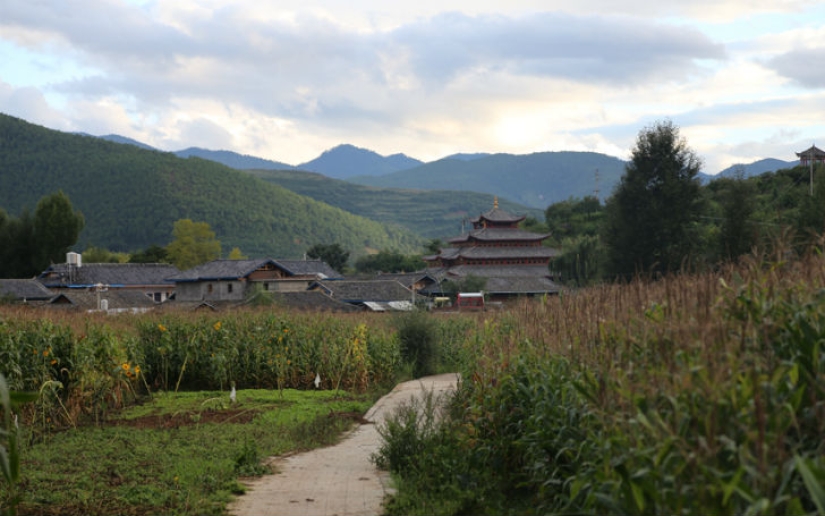
Moso villages are surrounded by fields of corn, sunflowers and potatoes. Each house is fully self-sufficient in the food that the family grows. Unfortunately, the region where the Moso live is undergoing significant changes - a highway and an airport are being built nearby, and more tourists are coming to see the surroundings and the unique way of life of the tribe.

Moso villages on the shores of Lake Luguhu.
Recent articles

It's high time to admit that this whole hipster idea has gone too far. The concept has become so popular that even restaurants have ...

There is a perception that people only use 10% of their brain potential. But the heroes of our review, apparently, found a way to ...

New Year's is a time to surprise and delight loved ones not only with gifts but also with a unique presentation of the holiday ...